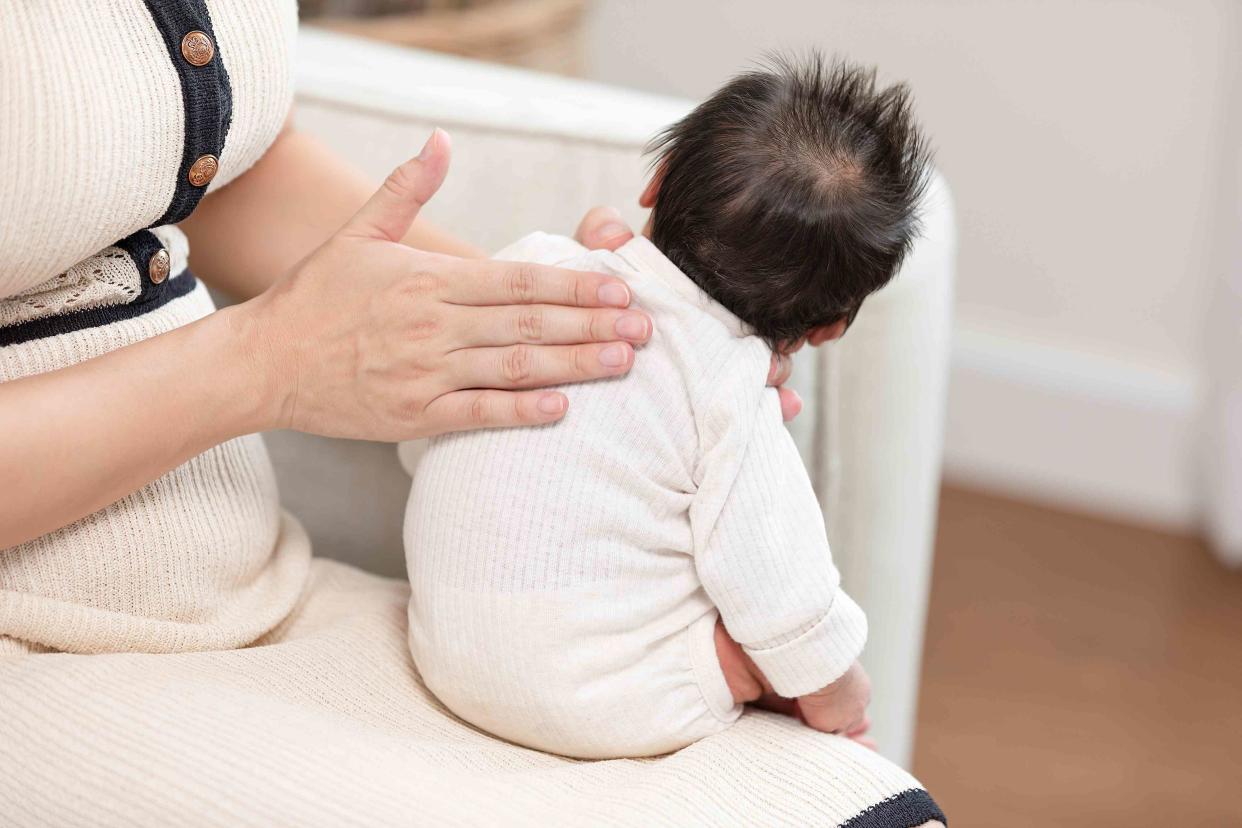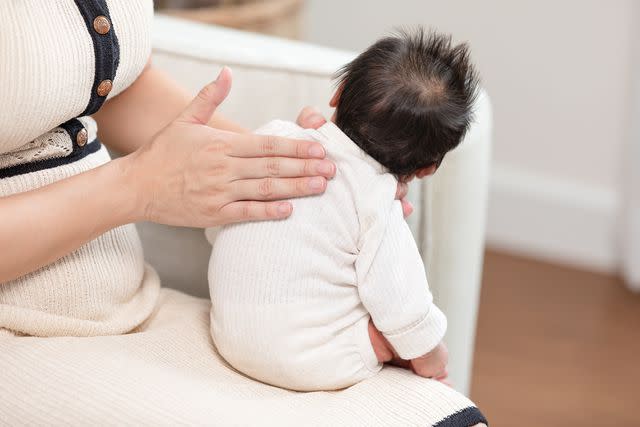How to Get Rid of Newborn Hiccups

Jomkwan / Getty Images
Medically reviewed by Daniel Combs, MD
Hiccups are a natural reflex for newborn babies, and you may have even felt them from your little one while pregnant. Newborns experience hiccups when their diaphragms become irritated. The diaphragm is the muscle that helps us breathe.
Newborn hiccups are usually harmless and go away on their own. Newborn hiccups typically go away after burping, but there are other ways to eliminate them as well.
This article will explain why babies get hiccups, how to stop them, and when to see a healthcare provider.

Jomkwan / Getty Images
Why Do Newborns Get Hiccups?
People of all ages get hiccups when their diaphragms become irritated. The diaphragm is a dome-shaped muscle located at the bottom of the lungs. When you take a breath, it pulls down to allow air to fill your lungs. When you breathe out, the diaphragm relaxes to allow air to flow out.
When the diaphragm becomes irritated, it can start to pull down in a quick, jerky motion. This causes your body to suck in air. When this air hits your vocal box, it causes the vocal cords to close suddenly, making a hiccup sound.
Possible causes of hiccups in babies include:
Eating too quickly
Bloated stomach
Certain medications
History of abdominal surgery
How to Stop Newborn Hiccups
Newborn hiccups usually last a few minutes and do not require medical intervention. If you’d like to help your little one get over them sooner, you can try some gentle measures.
Burp Your Baby
Burping your baby can help to relieve any stomach bloating that may have led to the hiccups. Burping clears air bubbles stuck in your baby’s stomach or esophagus (the muscular tube connecting the throat to the stomach). Try gently burping your baby throughout feedings to prevent or cure hiccups.
Try a Pacifier
If your baby uses a pacifier, try offering one when they have hiccups. The sucking motion may help to calm the diaphragm and relieve the hiccuping sound.
Change Position
Try changing your baby’s position when they have the hiccups. If your little one is lying down, hold them upright to see if that helps. You could also try rubbing their back to help relieve any air bubbles.
What Not to Do
There are many hiccup remedies for adults that are not safe for babies. Never have your baby try to breathe in a paper bag or hold their breath. Do not offer water or any liquids other than breast milk or formula. Scaring or surprising your baby will not cure hiccups.
How to Prevent Hiccups in Babies
It may not always be possible to prevent newborn hiccups because hiccups are a natural reflex for babies. However, there are actions that you can take to lower your child’s risk of hiccups.
Eating quickly may lead to hiccups, so try slowing your baby down during feedings by taking breaks. Try burping your baby throughout the feeding as well.
If your baby seems to get hiccups after an extended feeding, try to break up daily feedings. Offer smaller, more frequent feedings to see if that prevents hiccups.
When to See a Healthcare Provider for Your Baby’s Hiccups
Hiccups can occur at any age and are almost always harmless in babies. Studies show that they are more common in preterm infants than those born at full-term.
While uncommon, hiccups could be a sign of gastroesophageal reflux disease (GERD) in babies. Talk with your child’s healthcare provider if your child is experiencing frequent bouts of hiccups, along with other signs of GERD.
Signs of infant GERD may include:
Spitting up
Trouble swallowing
Arching back
Refusing to eat
Crying
Vomiting
Summary
Newborn hiccups are common and occur when a baby’s diaphragm becomes irritated. Hiccups are a natural reflex for babies and almost always resolve on their own. To help get rid of your baby’s hiccups, try burping your baby, offering a pacifier, or offering a feeding. Do not try adult hiccup remedies like breathing into a paper bag or making your baby hold their breath.
To prevent newborn hiccups, try offering smaller feedings with breaks for burping. Most cases of newborn hiccups are harmless but they could be a sign of GERD. If your baby has other signs of GERD, such as vomiting or crying after eating, see your child’s healthcare provider.

